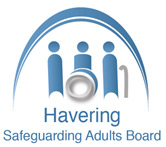Making Safeguarding Personal
What is Making Safeguarding Personal?
Making Safeguarding Personal (MSP) enables safeguarding to be done with, not to, people – ‘no decision about me, without me’.
MSP is an initiative which aims to develop a person-centred and outcome focused approach to safeguarding work. The adult concerned must always be at the centre of adult safeguarding enquiries, and their wishes and views sought at the earliest opportunity.
When considering an individual’s wishes and thoughts, you must also consider:
Positive Risk Taking
As individuals we all have the ability & choice to take risks. The principle of making an ‘unwise decision’ is enshrined in the Mental Capacity Act 2005.
Supported Decision Making
A Care Act Advocate (CAA) must be appointed if the adult has significant difficulty following the process and has no family or friends to support them. If they lack capacity, an Independent Mental Capacity Advocate (IMCA) must be instructed to support them through the safeguarding intervention. Supported decision making focuses on the outcomes the person wishes to achieve, what is working in their lives and what is not. There should be a mechanism to clearly guide and record the ‘conversation’ about choice and risk.
Freedom from Undue Influence
A person might decline an intervention because of undue influence or coercion, in which case, such a choice should not be taken at face value. Support may be required to help a person make a decision free from such influence.
Involving the Individual
When evaluating whether MSP was properly applied, recommended questions for the individual about their experience of the safeguarding journey are:
- Did you understand why people did what they did to try and keep you safe?
- Do you feel listened to during conversations and meetings with people about helping you feel safe?
- How happy are you with the end result of what people did to keep you safe?
- Do you feel safer now because of the help from people dealing with your concern?
What does this mean for Safeguarding?
MSP is about engaging with people about the outcomes they want at the beginning and middle of working with them, and then ascertaining the extent to which those outcomes were realised at the end. MSP means adult safeguarding:
- is person-led
- is outcome-focused
- engages the person and enhances involvement,
- choice and control
- Improves quality of life, wellbeing and safety
- shifts the focus from process to people Making Safeguarding Personal:
- is NOT to be seen in the context of a formal safeguarding enquiry (Care Act, 2014, Section 42 enquiry)
- is NOT about a focus on personalised front line practice
The Care Act 2014 guidance requires adult safeguarding practice to be person led and outcome focused, incorporating MSP as the recommended approach to safeguarding alongside the 6 safeguarding principles:
6 SAFEGUARDING PRINCIPLES
- Empowerment – presumption of person led decisions and informed consent.
- Prevention – it is better to take action before harm occurs.
- Proportionality – proportionate and least intrusive response appropriate to the risk presented.
- Protection – support and represent for those in greatest need.
- Partnership – local solutions through services working in their communities.
- Communities have a part in preventing detecting and reporting abuse and neglect.
- Accountability – Accountability and transparency in delivering safeguarding.
